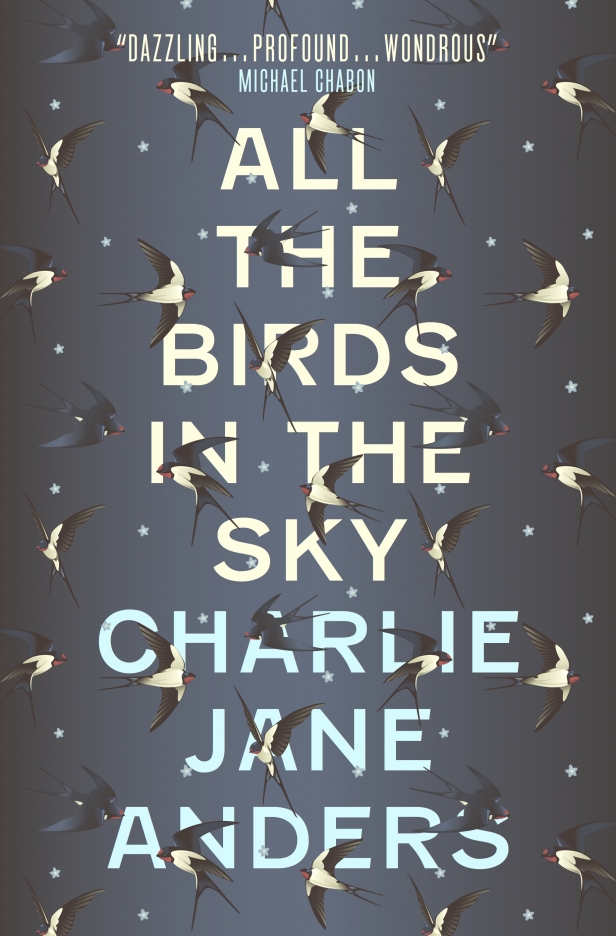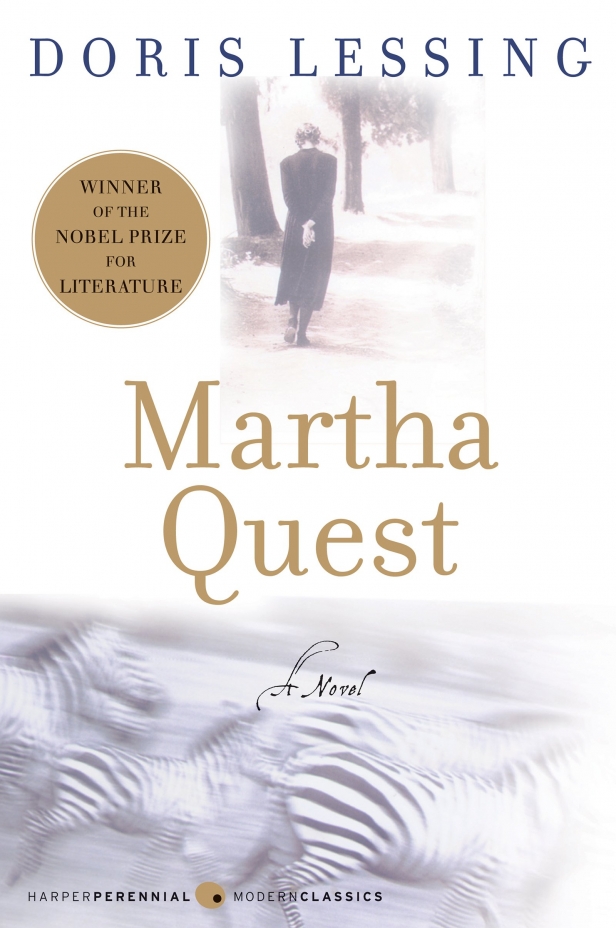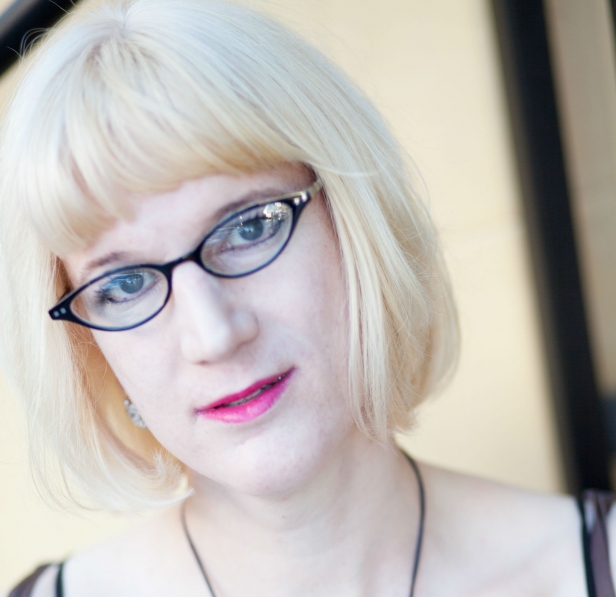Charlie Jane Anders’ All The Birds In The Sky is something special. The debut novel from the Hugo Award winner (for novelette Six Months, Three Days) and managing editor of io9 has got witches, potentially devastating scientific discoveries, talking animals, and what could very well be the end of our world, but at its core, it’s the story of a friendship between two people, witch Patricia and scientist Laurence, who grow up together, grow apart, and find each other again when everything is on the brink of going to hell.
We spoke to the author about witches vs mad scientists, why middle school is hell and finding the balance between zany and heartbreaking.
What was the starting point for All The Birds In The Sky?
It was just the idea of a witch and a mad scientist and what happens to them in their relationship. I was noodling one day on something else and that kind of popped into my head. I think my very early original concept was ‘Witch versus mad scientist’ or ‘Mad scientist versus witch,’ and it would be them fighting each other. It would be some kind of zany thing where they would be setting death traps, like spy versus spy almost. I was thinking about them being enemies. And that lasted a month, I had a month where I had a document called Mad Scientist Versus Witch that I was putting a bunch of stuff into and then I was like “Actually, what if they’re friends?” and then that went in a different direction.
The friendship between Patricia and Laurence is such a strong anchor, it’s really affecting.
Yeah, that was something that became crucial. Again, the first couple of drafts of it were much more zany and Douglas Adams-y with a lot of wacky, weird stuff going on and you can still see the remnants of that, but I was using their story as an excuse to have a lot of weird things popping in and out. But over time I started to think of it more as a relationship story, and that was the part that really interested me, that was the part that I felt gave it more grounding and allowed the more zany, weird ideas to feel anchored to something. That was sort of a light bulb going on, and I thought that was something that I can really use here, that idea of a relationship between two people that are so different but have this connection.
There’s a strong environmental message too, which feels very relevant!
You know, I can’t even remember how that came in. I wanted the book to start off in the present day and then move into the near future, and thinking about the near future I naturally started to think about environmental problems because I think that is going to be huge. But also, I think that the more I got into the relationship between Laurence and Patricia, and the mad scientist and the witch and their different ways of looking at things, the more the book started to be about nature and about our relationship to nature, and having huge natural disasters happen just felt like an extension of that.
Is it tricky to write about those themes without coming off as preachy (which the book doesn’t)?
I mean, I think I took out some of the stuff where it was more preachy, but my number one concern on every single page was making sure that you sympathised at every turn, especially with Laurence and Patricia, but kind of with the other characters too. And for me as a reader, the more people are lecturing me and the more people are talking down to me, the less I can sympathise with them. So it was kind of a natural thing of not wanting any of the characters ever to be like that. It would have been very easy to have the witches stand around and talk about how society is terrible and we’re bad, and it would actually helped the plot a little if the witches had been more judgmental about people! They are very judgemental about our relationship with nature and about how we’re abusing the environment and stuff and I really tried to not go overboard with that because I thought “I don’t want people to just feel like witches are assholes!”

You manage the transition from Laurence and Patricia as kids to them as adults wonderfully. Was that difficult?
Earlier drafts of the book were much more whimsical and silly throughout, and one thing I noticed that happened for a while, was that the first half of the book was a lot sillier than the second half, either because they’re younger or because I was feeling more free to just fill the space with lots of silly inventions and weird magic and weird science. Because then when they’re grown ups, they’re in a city and there’s all these other people around and they have all this other stuff filling in the gaps a little bit more.
And I felt like the danger with that was that the book felt like there was too much of a tonal shift. Obviously there’s going to be some tonal shift when you go from them being kids to being grown ups, but I didn’t want it to just suddenly feel like it was this very goofy silly book where everything was just kind of wacky and weird, and then you get to them being grown ups and they’re surrounded by adults and suddenly things are grounded in this other way, so I kind of had to peel that back.
I think again it really comes back to focusing on the characters, and the more I loaded it up with the zany weirdness, and especially the more I was kind of laughing at the characters and putting them in absurd situations and poking fun at them, the less it allowed you to actually invest in them. And so there was a really painful process of peeling back some of the goofiness and silliness, especially from the first half of the book, so that it felt more natural.
Was that something you were worried about?
I knew it was a risky thing, I knew it was super risky to have the first part of the book be them as kids and then jump ahead. My hope was that they would feel like two very satisfying stories in their own right, the childhood story and the adult story. But you know, it is asking the reader to come along on this sort of leap of faith, which is one reason why I try to ease you back into it at the start of the adult section. Also, I think that it was really important for me to do that.
Part of what I wanted to get at was, when you’re young and isolated and about to be a teenager, you think that if you could just find other people like yourself, like other mad scientists or other witches, or if you’re a goth if you could just live in a town where there’s more than one other goth, if you could just find other people like yourself, that you fit in with that understand what you’re dealing with, then your life would be perfect and awesome. And then you grow up and you move to the city and you do get to be surrounded by other Goths or mad scientists or witches or whatever, you get to find other people who are in the same group as you, and that doesn’t suddenly make your life perfect or wonderful because they’re never going to be the exact same person as you, and they’re going to have all these expectations of you based on you having the same identity as them. They’re going to be like “Well, if you’re a goth, you have to do x y and z or you’re not really one of us.”
I think getting what you’ve always wanted but it’s not exactly what you thought it was going to be is an important part of growing up, and that was something I really wanted to dramatise. And so I really wanted to get you into their sense of isolation as kids and make you really feel that, and then jump ahead ten years and they’re no longer isolated, they now each have their own community that’s separate, but it’s still not magically perfect and wonderful.
The portrayal of the hellish middle school was definitely a great way to show their isolation.
Actually, the school went through a lot of different versions. It’s funny; people always say that high school is hell. I think that middle school, which is in the United States it’s 10 years old to 13, 14 years old, I think of that as being the actual hell. I think that high school is also kind of hellish but the years where you’re actually going into puberty and dealing with just savage social structures and cliques and craziness, I think that’s actually the worst time. So I wanted to capture that.
A lot of the stuff that we kind of take for granted is actually absurd if you actually stop to look at it, and school is the most absurd. My parents were college professors so I grew up in a college town, and there was a school of education at the college, which meant that my local state-funded school was ground zero for a bunch of really weird educational experiments that the school of education had cooked up. So it felt like every few months there would be some new weird system that they were trying out. I feel like that’s only gotten worse since we’ve gotten so obsessed with test scores and treating kids like lab animals. I think that we don’t know what to do to fix education so we keep coming up with crazier and crazier ideas and it’s kind of horrifying. I feel bad for my friends who are teachers now.

Were there any books or authors that you looked to for inspiration?
There was a whole bunch of different stuff that I kind of drew on. One of my huge inspirations and one of my favourite authors of all time is Doris Lessing. She wrote this five book series called The Children Of Violence that does a couple of really interesting things. It’s semi-autobiographical and it starts out with the main character as a young person in Africa getting involved with this radical leftist politics, and each of the five books goes ahead in times a fair bit. It stays with the autobiographical feel for a while but gets more and more fantastical until by the final book, it’s the near future and people are getting psychic powers and there’s nuclear war and there’s mutants and stuff. She just gets weirder and weirder, and I love the way that she’s able to jump ahead in time and show her main character growing up and changing, and also the way that she slowly gets bigger and more fantastical until by the end it’s the end of the world and people have developed telepathic powers, I love that, I think that’s amazing.
Actually, Piers Plowman is a big influence on this book, which is a weird thing. I read it in college and it had a huge impact on me. It’s a quest narrative, where the quest is metaphysical rather than looking for an object. It’s this guy who is looking for the secret of what it means to be a good person, and he basically just stumbles around talking to random people he meets and allegorical figures. The Roman Centurion who crucified Jesus will just be wandering around somewhere. It was written in the middle ages but the other thing about Piers Plowman which is kind of awesome is that there’s one page where he’s searching and searching and searching for this metaphysical truth that he’s dedicated his life to searching for, and then he kind of forgets about that. A few years pass, and forty years later he realises that he was old and going to die soon and hadn’t figured out anything. He just jumps ahead forty years in one sentence and realises “Holy shit, I just wasted my life, and I still don’t know any of the answers to this thing that I was supposed to find the answer to.” And it’s done super quickly and brutally!
Which authors are you particularly excited about at the moment?
David Mitchell, obviously. The Bone Clocks was just incredible. Jo Walton is always amazing, she comes out with these crazy ideas in a good way, I’m really excited to see what she does next. NK Jemisin. There’s a lot of really great people writing right now, there’s a lot of unusual work in science fiction and fantasy and it makes me really excited.
Finally, what are you working on next?
I’m under contract for a second novel with Tor, and I’ve written one and a half drafts of it and basically it’s as different from All The Birds In The Sky as I can possibly make it. It’s set in the future on another planet and it’s not a funny book, there will probably be a little bit of humour in there but it’s not super funny.
All There Birds In The Sky is out now from Titan Books. You can read our review here and keep up with the latest genre news with the new issue of SciFiNow.
